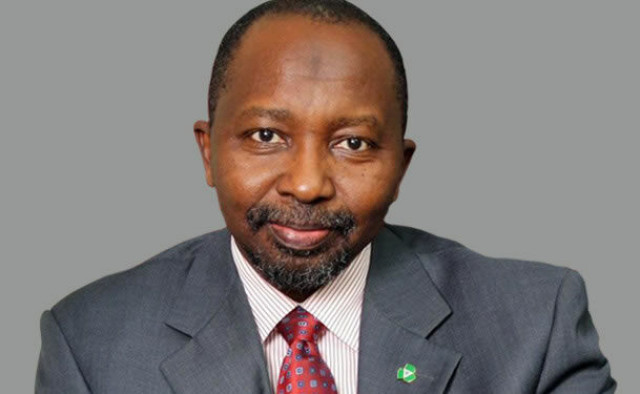A former Commissioner for Insurance and Chief Executive Officer of the National Insurance Commission, NAICOM, Mr. Mohammed Kari has opposed the registration of the Nigeria Police Force insurance company, arguing that the police lack the capacity to effectively manage a business.
In an objection letter addressed to the Commissioner for Insurance, titled, 'Registration of the NPF Insurance Company – An Objection', Kari stated: "I refer to your publication and request for objection on the above subject."
He strongly objected to the registration of the NPF Insurance Company Limited, citing concerns about conflicts of interest, lack of expertise, and potential undue interference in the management of the insurance company by the NPF.
Kari wrote: “I am writing to formally object to the registration of the NPF Insurance Company Limited. My objection is based on several critical concerns that I believe warrant serious considerations. Before I lay out the concerns, I’ll take the opportunity to introduce myself, thus indicatiing why I have a first-hand justification for my objections.
“I was an active player in the Nigerian insurance industry from 1979 to 2023. In this period, I was the Managing Director/Chief Executive Officer of Nigeria Reinsurance Corporation and NICON Insurance Plc and later the Commissioner for Insurance/Chief Executive of National Insurance Commission (NAICOM).
"I was also a consultant in the sector in between these offices. I had the benefit of being an insurer to Nigeria Police Force (NPF), a reinsurer to their insurance providers and of course a regulator of the whole industry.”
Stating his concerns, Kari noted: “The core operations of the Nigeria Police Force are fundamentally at odds with commercial activities. The primary mandate of the Police is to maintain law and order, not to engage in business ventures.
"Allowing the Police to operate an insurance company could lead to conflicts of interest and distract them from their essential duties. The Police is a regulator of sorts, they cannot be enforcing the law on compulsory insurance and be a provider of insurance. The temptation to force motorist to insure with their company will be irresistible.
“The structure and ownership requirements stipulated by Nigerian insurance laws and Financial Reporting Council necessitate a level of expertise that is currently lacking within the nominated Board of Directors and the Police Force.
Another requirement is a spread in ownership to avoid undue influence on the company by one shareholder.
The authoritative nature of the police and their potential representation on the Board of Directors could lead to undue interference in the management of the insurance company, compromising its independence and effectiveness.
“The Nigeria Police Force investments have a history of mismanagement, as evidenced by the numerous issues surrounding the Nigeria Police Pension Scheme. This history raises significant doubts about the ability of the Police to effectively manage an insurance company, which requires a high level of expertise and know-how.
“The fragmentation of the insurance business would result in the loss of valuable data and income for the industry. The entry of the Nigeria Police into the insurance market could disrupt the existing ecosystem, leading to inefficiencies and potential data loss that could harm the overall industry.
"In case they are floating the idea of a captive, I don’t believe the Nigeria Police Force has enough business spread or expertise to support the survival of a captive company neither do they have the reputation to attract independent business. This would expose public funds to unwarranted loss.
"The command-and-control nature of the Police force would make them take offence of a caution by a regulator.
I don’t see how the Police can operate under someone’s regulation, for they would not accept commercial directive, and neither would they observe regulatory control. It would compromise the authority of the regulator if one company is seen to ignore regulatory control or disregard them outright, the regulator would lose its authority to regulate the market."




















